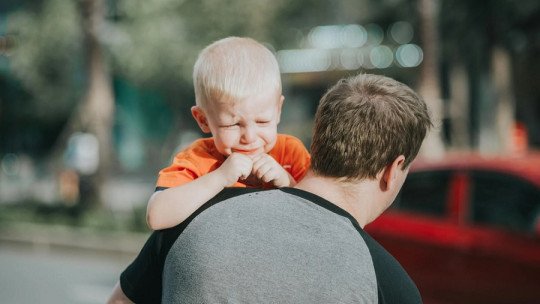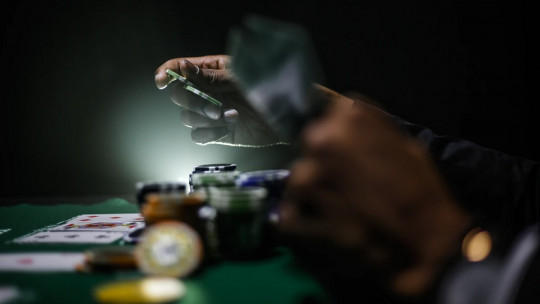
Addictions are a complicated topic, encompassing many characteristics, conditions, and consequences. There are so many factors that there really is a lot of ignorance about this topic. Lack of information, plus personal characteristics such as impulsivity and sensation seeking, lead people to develop an addiction.
That is why scientific dissemination accessible to everyone is so important. This article joins this front, specifically from a family perspective, to talk about the people most vulnerable to the consequences of adult decisions, without them being responsible: How a parent’s addiction affects their children and the relationship between them.
What is an addiction?
An addiction is defined as a physical and mental illness that alters thoughts, behaviors, emotions, and physiology. It creates such an intense need to consume a substance or repeat an addictive behavior that it prevents conscious control of behavior, and generates high discomfort when this is not achieved.
There are two types of addictions: with substances and without substances (when you are addicted to a behavior, such as shopping, having sex, gambling…). The deep desire that causes addiction leads addicted people to spend a lot of time, effort and money acquiring the substance or performing the addictive behavior; as well as obligations and important areas of life begin to be neglected (work, academic, social and personal).
Unfortunately, addiction is a chronic and relapsing disease, that is, periods of consumption alternate with periods of abstinence. This means that a person who used substances or had addictive behavior many years ago has a high vulnerability to returning to it. Therefore, it is very important that both the person and those around them are well informed and provide support that serves as an impetus to avoid relapse.
The effects of addiction on parents: how it affects their children
From the beginning it is difficult to be parents, since children are very vulnerable. They need care, attention and affection (just like adults, but to a greater extent), and they are dependent when they are still small. When one parent has an addiction and begins to neglect important aspects of her life, her relationship with her child is also affected.
And not only that, but, just as there begin to be repercussions for the father/mother, the minor begins to suffer them in his/her own life, being affected on an academic, social, psychological and physical health level, short and long term. Below, I mention the most important ones.
1. They are at greater risk of being in a low socioeconomic status
In addition to not being able to ignore the correlation between a low socioeconomic level and the development of an addiction, it must be taken into account that practically any addiction involves a significant financial expense. This implies that the parent who suffers from this disease allocates a large part of his or her partner’s salary to acquiring the substance or engaging in addictive behavior.
Likewise, it is possible that the time spent in addiction leads to neglect at work and a corresponding loss of work. This way, Added to the high economic consumption is the significant decrease in profits. You can even enter a loop of loans from banks or acquaintances, and debts generated by not compensating the loan, further ensuring the loss of assets.
2. They suffer child neglect and abandonment
Addictions mean a decrease in dedication to personal and family life, as we have mentioned. The lack of care and affection towards minors has serious consequences, both physically and emotionally, without them even being able to understand what is happening and why their father/mother does not pay attention to them.
For now, without adequate supervision, children can engage in reckless behavior and have serious accidents that may even endanger their lives. Furthermore, their diet and hygiene may be neglected, which also affects their physical health, or they may stop going to school or being helped with homework, hindering their intellectual development.
On the other hand, affection is essential, although it may not seem like it. Without the affection of either parent, Children can develop self-esteem problems, relationship difficulties, psychological disorders and delayed developmental development. These consequences may even continue to be present in adulthood.
3. They acquire a role that does not correspond to them
As the child grows, it is likely that he or she will become aware of the delicate situation in which the family finds itself and will want to get involved so that everything goes better. In other cases, it is the parent who does not suffer from addiction who begins to involve him/her little by little in the care of the family system.
This way, The eldest child in the family (or, if applicable, the only one) takes on the role of caregiver for the rest of the family: he/she acts as a father/mother to his/her siblings, his/her relationship and responsibility is equalized with the parent who does not have the addiction (who begins to lean on him/her) and even begins to care for or punish the one who does suffer from the addiction. addiction.
This is not something that is done consciously by any means. However, it produces a significant imbalance in the development of this child in the family system, making him/her take on responsibilities very early for his/her age, and limiting the fundamental rights and benefits of childhood and adolescence, of which he/she will no longer be able. enjoy.
4. They may suffer physical child abuse
People who have an addiction can become mentally alienated and lose control of their actions, either due to substance use or withdrawal symptoms. If this person’s character is hostile from the start, it is more than likely that the person will not be able to stop his impulses to commit violent acts.
In this environment, It may happen that the children or the partner suffer physical abuse when the parent suffering from the addiction enters these periods. As you can imagine, this has direct and obvious repercussions, both in terms of physical health and mental health. If the previous reasons were already sufficient to intervene in these cases, this only confirms the need to prevent addictions in the population and take care of the well-being of children.
5. Whatever the case, they have high emotional distress
Regardless of the degree of child abuse they suffer, psychologically or physically, children clearly suffer in these situations. When they are little, they do not even understand the situation and this causes them a lot of fear, uncertainty and even guilt, since they may think that their father/mother treats them that way because of how they are.
When they become aware of the situation, they continue to feel fear and anxiety about what could happen to them or their family, as well as frustration, anger and sadness. Between shame and the perception that a fundamental figure in their lives has failed them, they may withdraw into themselves, stop trusting others and do not vent to people outside the family system, keeping it taboo. These emotions sustained over time can cause serious psychological disorders.








